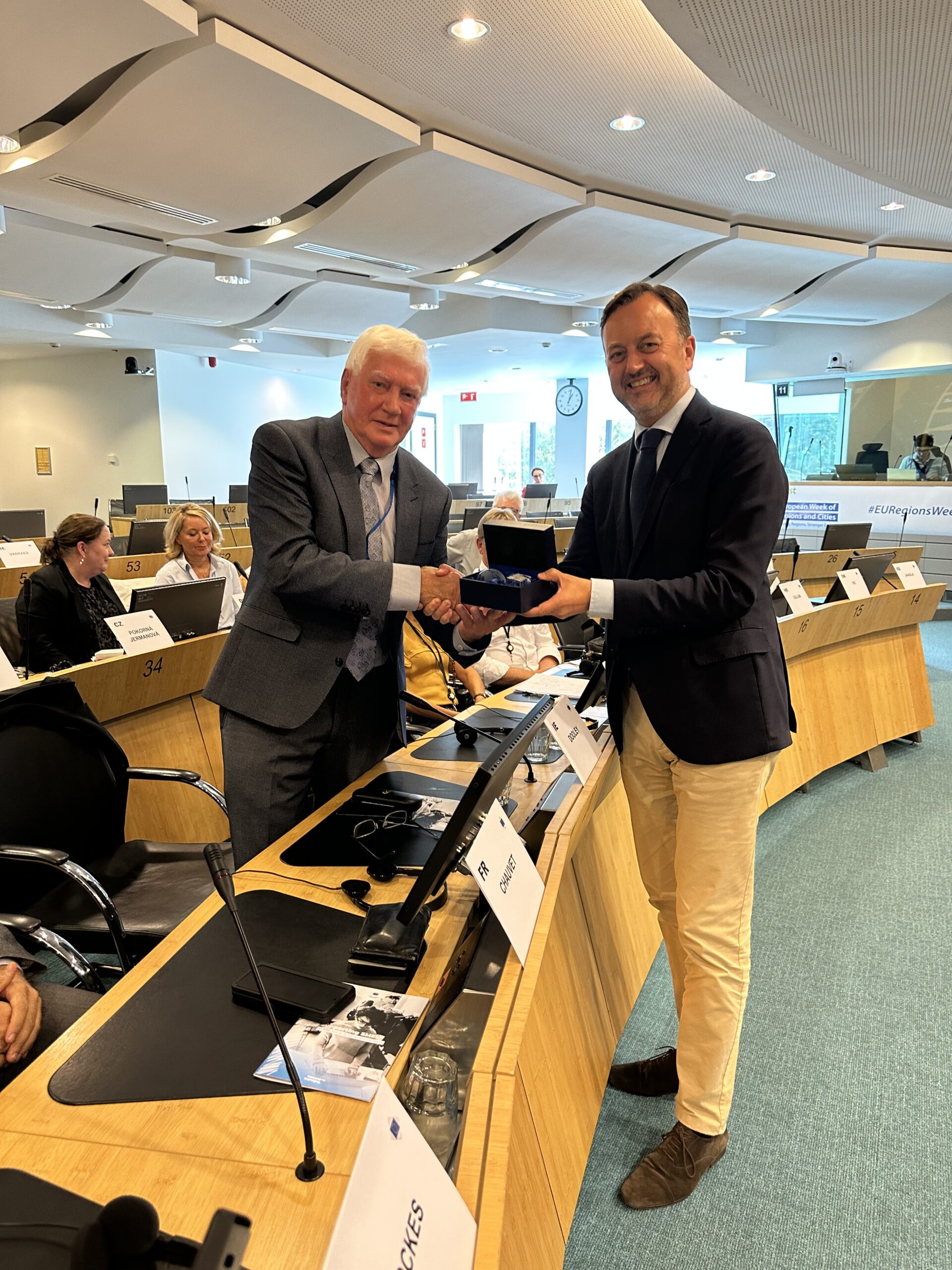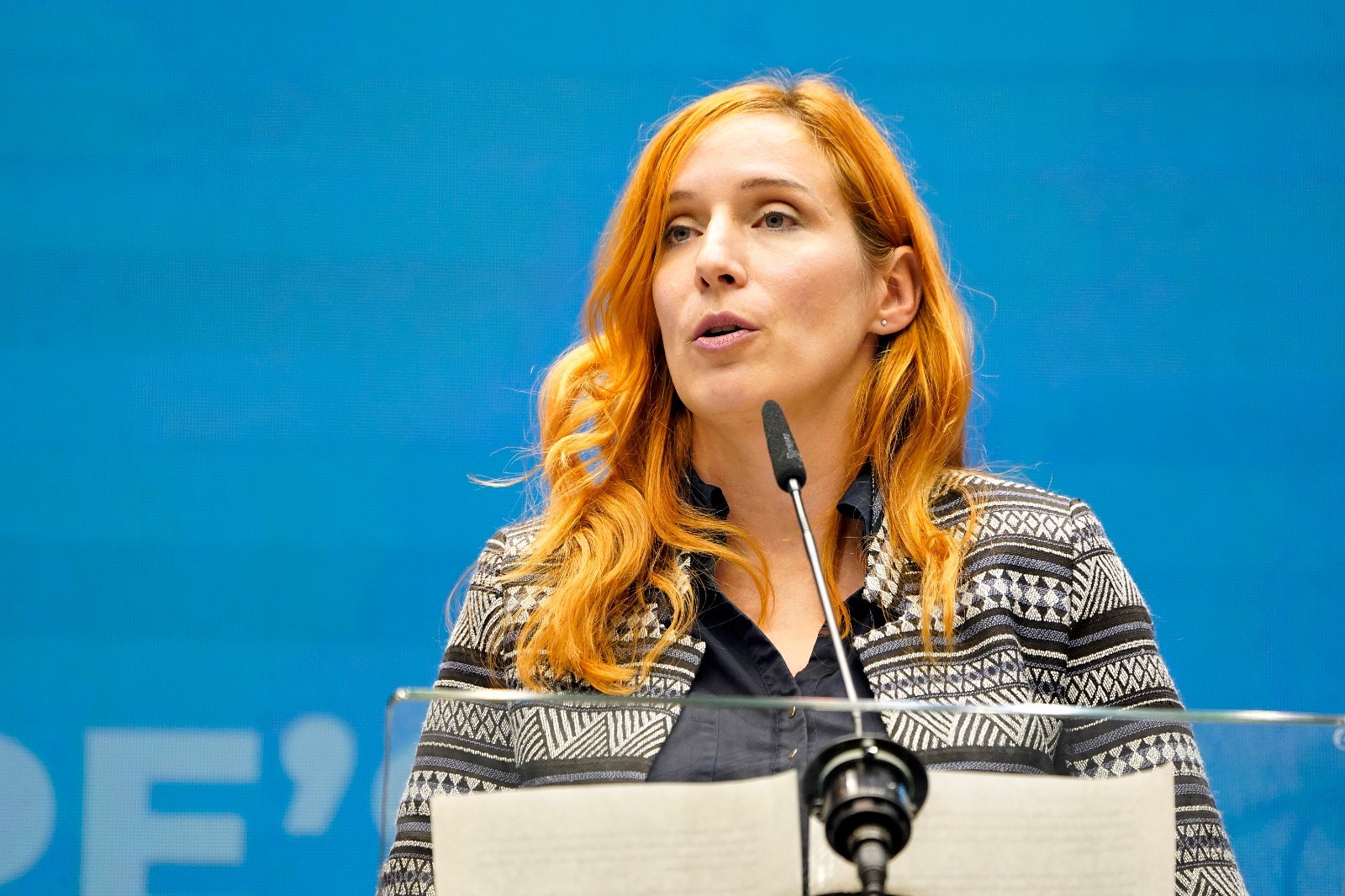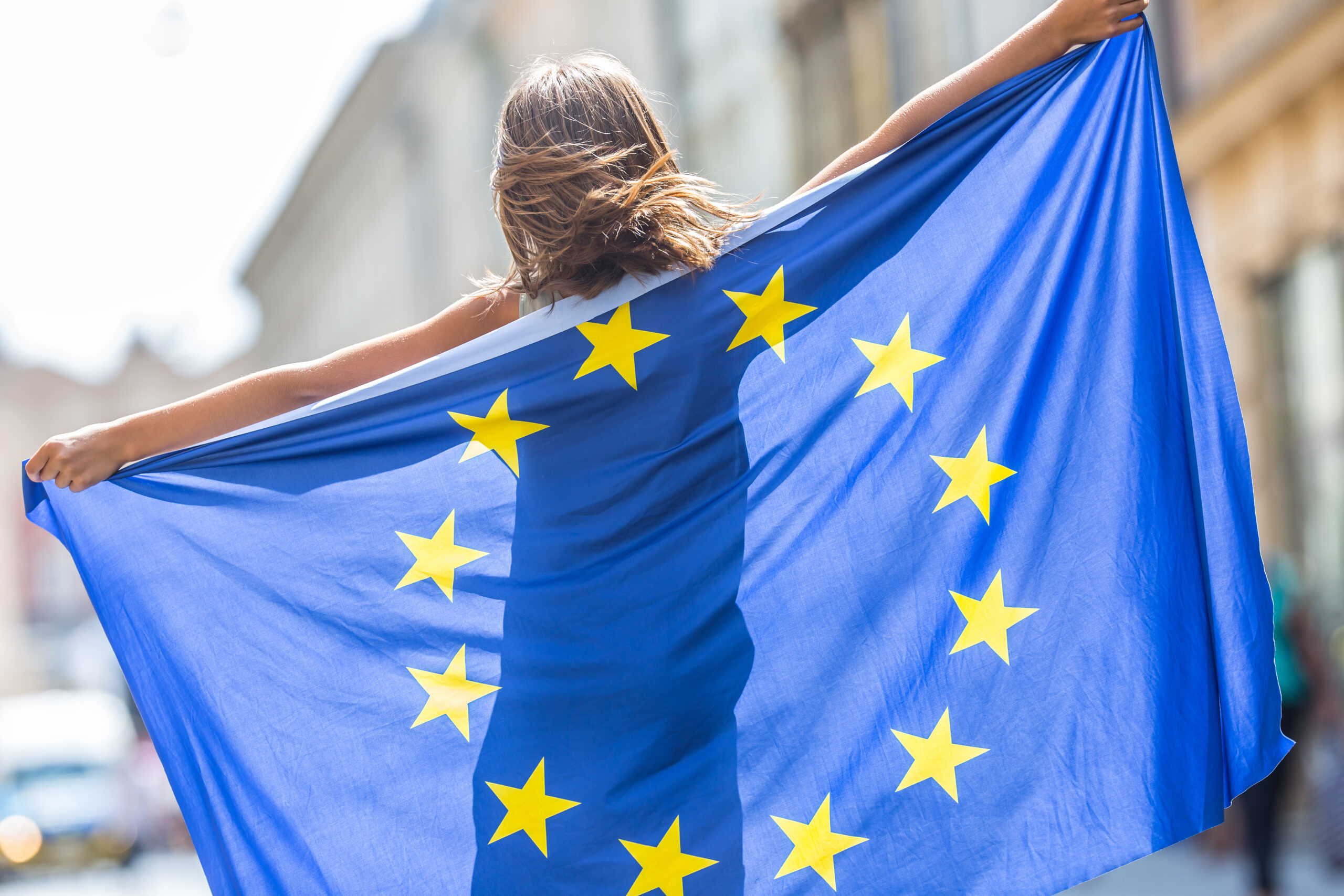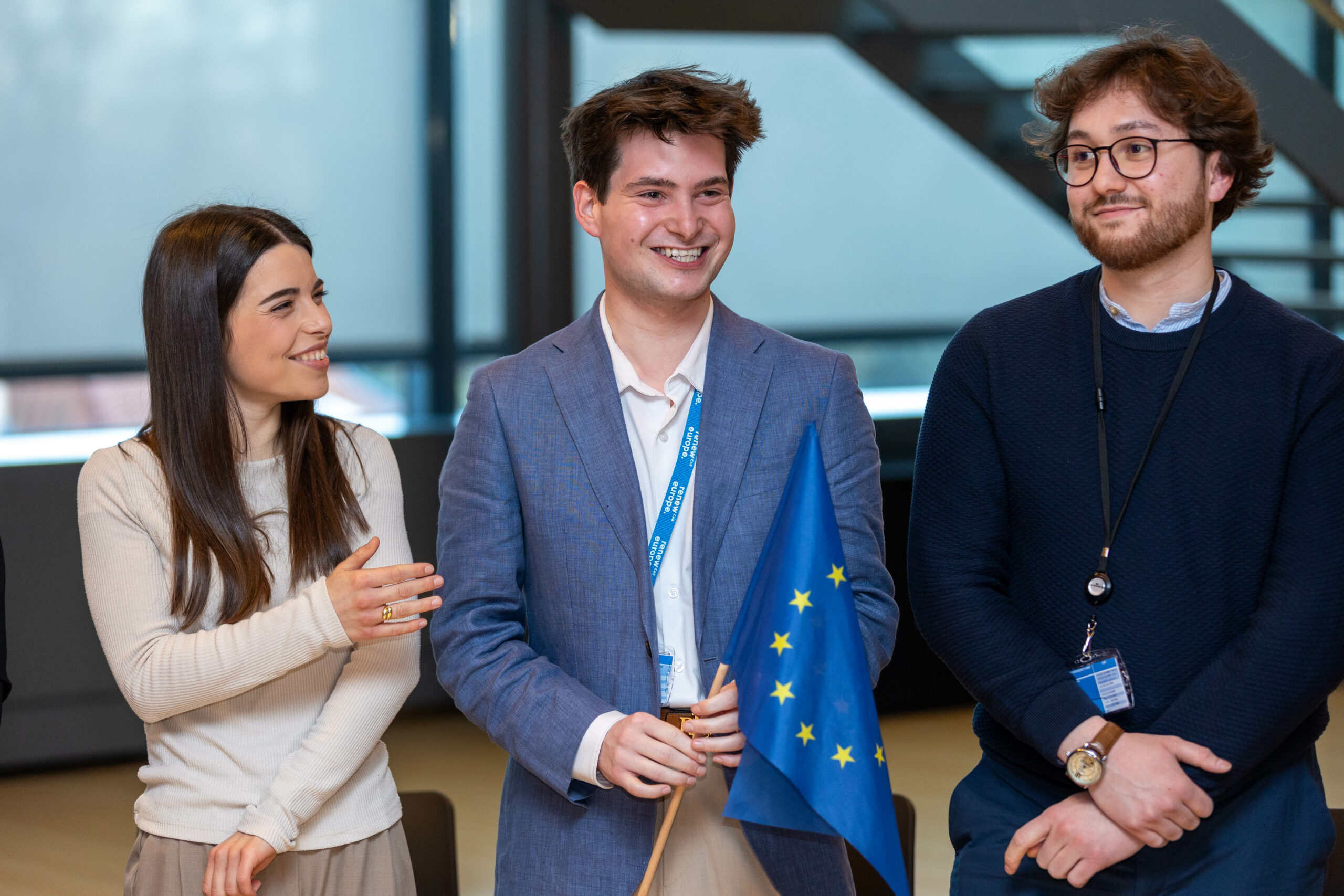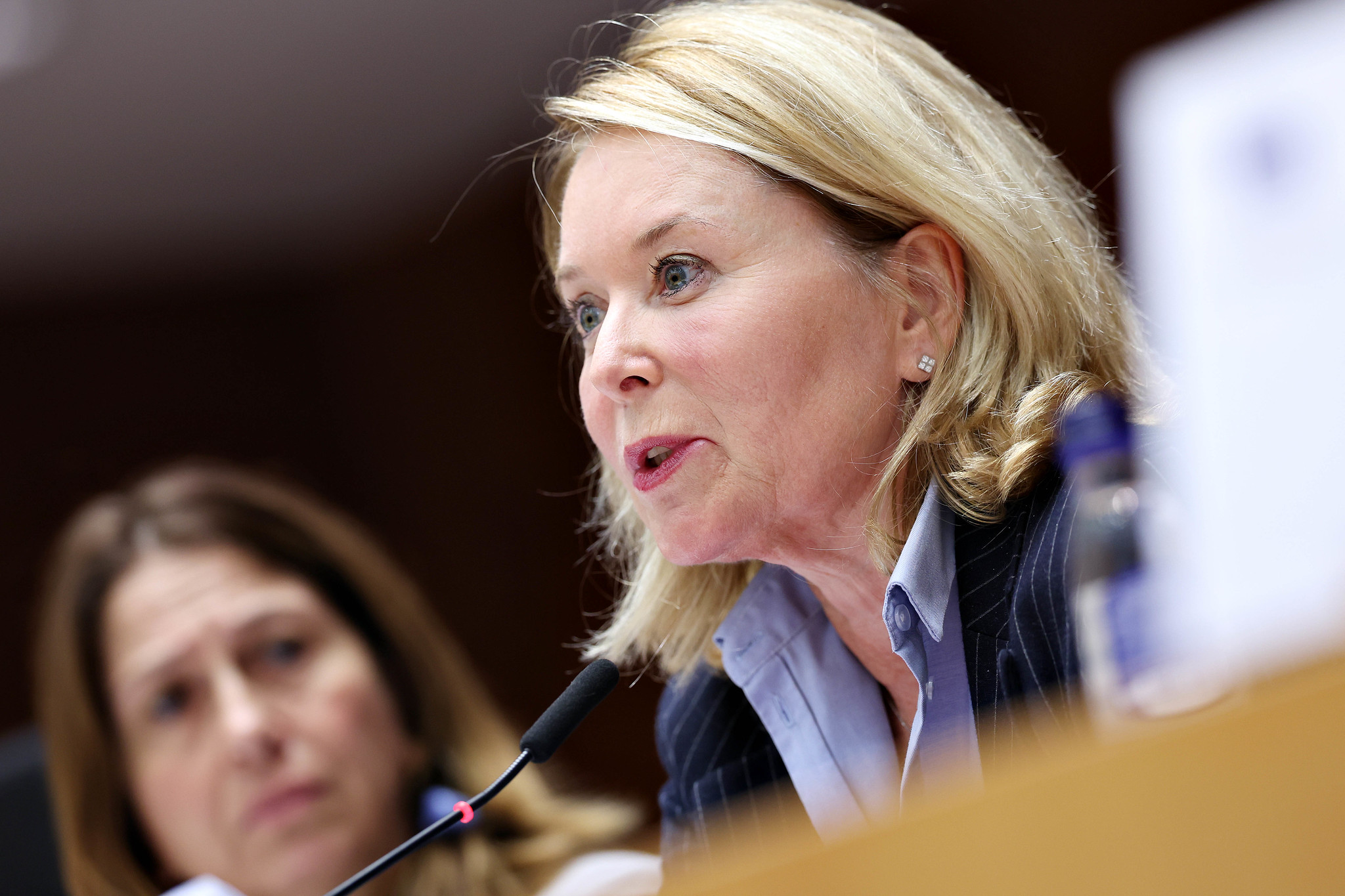At the European Committee of the Regions Plenary, members will debate on the State of Regions and Cities, a health union for Europe, local authorities’ support to Ukraine, and two reports for approval from Anne Rudisuhli and Magali Altounian from France.
— This overview/blog covers the European Committee of the Regions plenary of Tuesday 10 and Wednesday 11 October 2023, and activities of the European Week of Regions and Cities.
Follow live: https://cor.europa.eu/en/events/Pages/157th-cor-plenary-session.aspx
OVERVIEW
WEDNESDAY 11 October
During the debate on local and regional authorities’ support to Ukraine, Dovyddas Kaminskas, Mayor of Taurage, Lithuania, pleaded to support the rebuilding of Ukraine:
“50 Billion will not do that, we need to allocate more money for this, so more money needs to be found and confiscating oligarch’s resources could contribute to this. We also have to ensure that Ukraine becomes more sustainable and green in rebuilding, addressing the environmental impacts of the war. We need to work on reform too, focusing on corruption as this can jeopardize the country’s path into the EU. We have to seriously address this through good processes and fight new ways to fight Russian propaganda and disinformation. We’ll focus that money reaches the right communities, to the most affected and to the critical infrastructure that needs to be rebuild. The funding should also be accessible directly for local authorities and municipalities. Our main role therefore remains to engage with our Ukrainian counterparts as local and regional representatives because the most important thing is more than rebuilding infrastructure rebuilding society.”
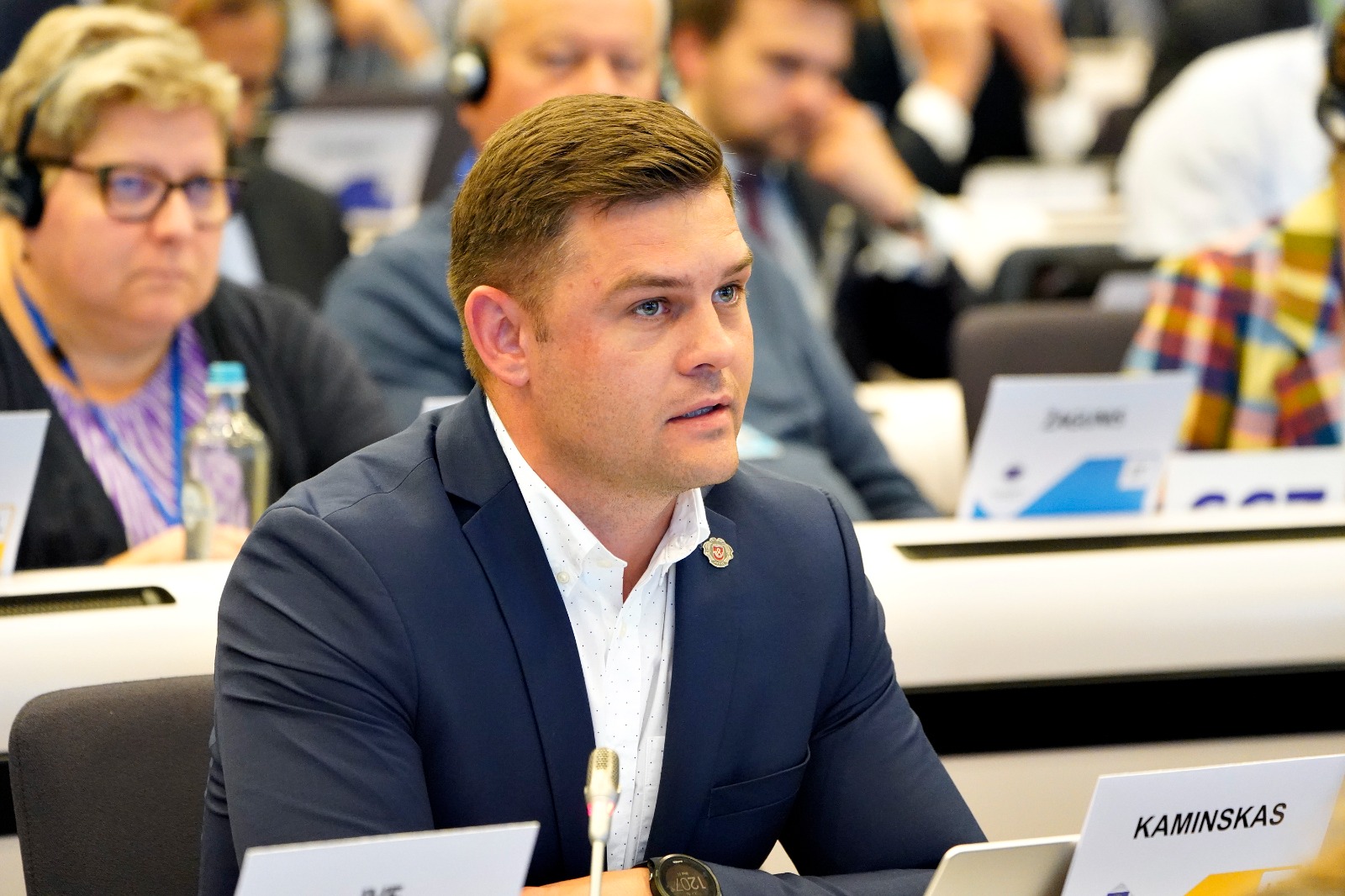
Robert Van Asten discussed a just and sustainable transition for Automotive Regions, with Susana Solis MEP:
As the Renew shadow rapporteur, I have collaborated with minister Schulze over the past seven months. I focused on several key concepts. First, prioritizing the reskilling of the labour force in vulnerable regions with a supply industry. Second, holding Original Equipment Manufacturers, who made big profits over the last years, accountable in the transition. Third, I emphasized the power of rethinking and to learn how coal– and industrial regions have dealt with major transitions in the past. Lastly, I highlighted the need for a fundamental mobility transition, a topic that formed the core of my rapporteurship on the smart and sustainable mobility strategy.
I am pleased to note that many of these topics are well-addressed in the opinion, and I anticipate that today’s vote will provide an opportunity for even further refining. Automotive regions are embarking on a fundamental transformation. Let’s leverage the opportunities presented by this transition to create a positive social, ecological, and economic change.”
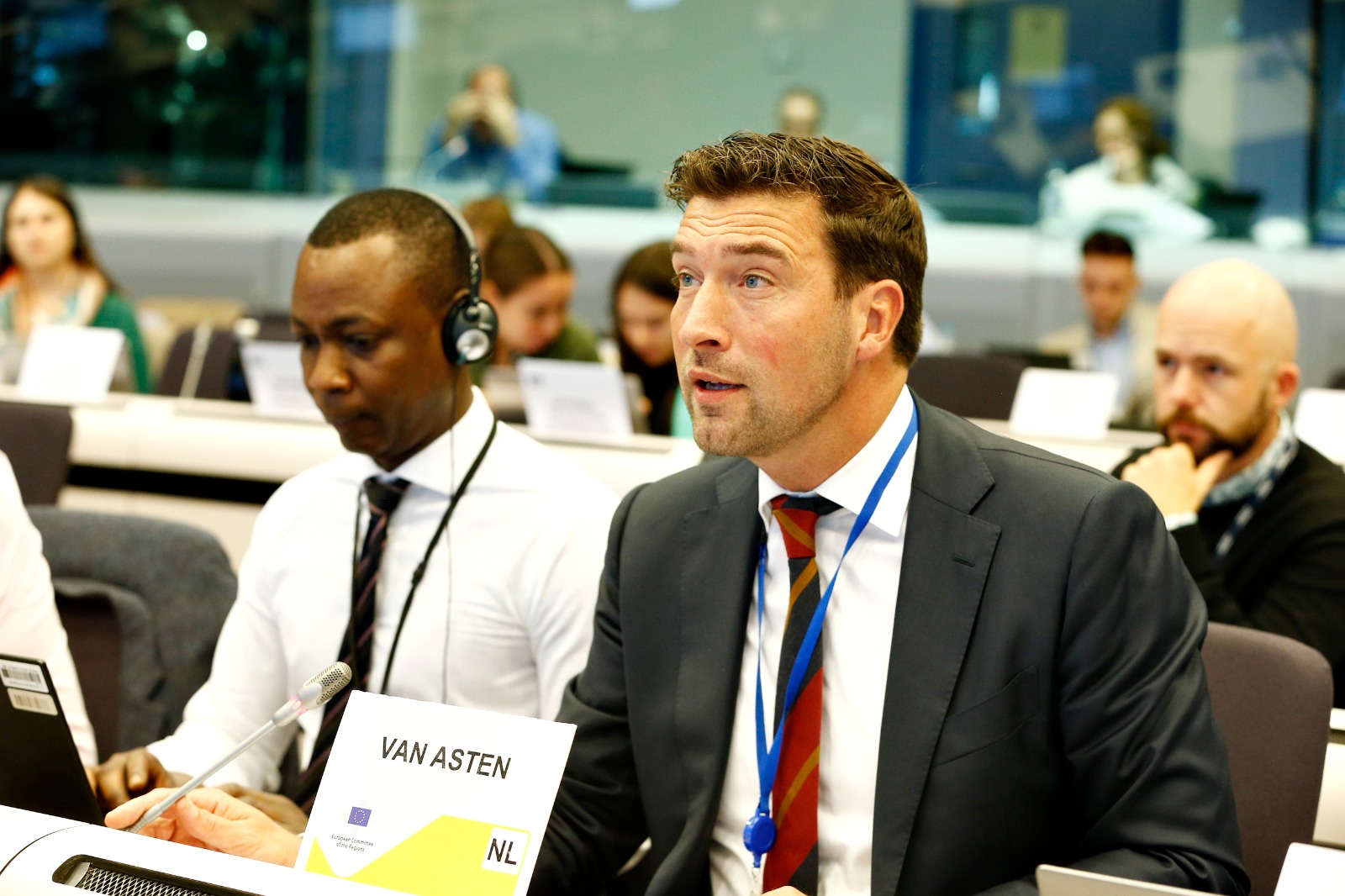
In the debate on the priorities of the Spanish Presidency of the Council of the EU, Willy Borsus intervened on behalf of our group
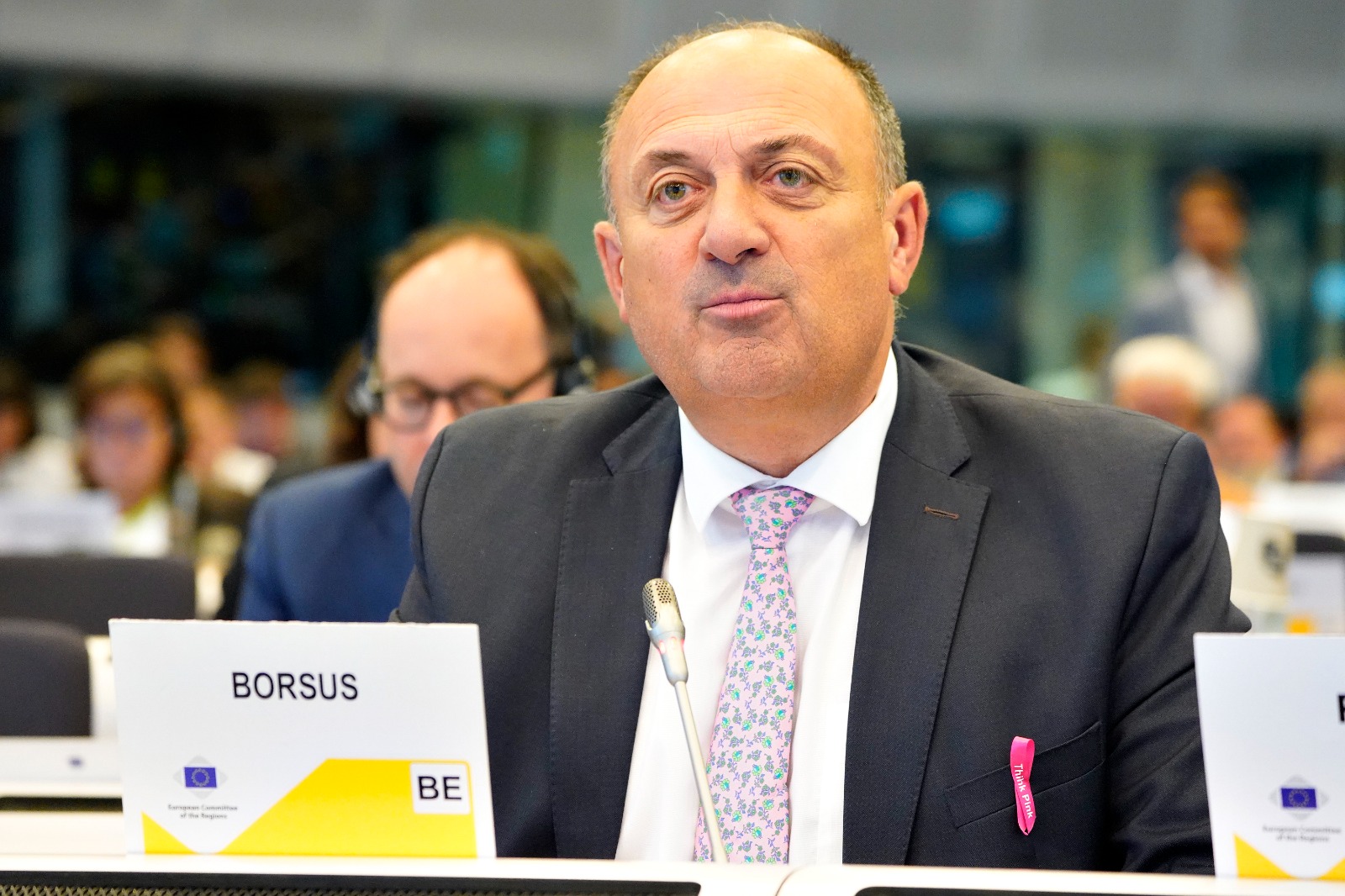
In the debate on the state of regions and cities, Jasna Gabric addressed Pierre-Yves Dermagne, Deputy Prime Minister and Minister for the Economy and Employment of Belgium:
“What I am about to say weights additionally heavy considering the horrific developments in the last days. History can easily repeat and the rising global instability does not bode well for regions feeling neglected.
One of the chapters of the State of the Regions report focuses on Enlargement. As Chair of the CoR cooperation group with North Macedonia, I feel I must talk about the Western Balkans.
This region, surrounded by EU members, has been held, for decades now, at the crossroads of history, bearing witness to the turbulence of the past – the shivers of these turbulences can still be felt today, as the incident in Kosovo showed us recently. The European perspective gave the people in this region hope for decades – but hope does not last forever. I came across a European Commission report recently which shows that places within Europe which feel left behind are faced with disengagement and discontent in the long term. When the development trap is unaddressed, disengagement and discontent make citizens less likely to support European integration and values. Can you imagine what it does to those that have been stuck for decades in the accession limbo.
This is why I would like to address my first remark to Mr Dermagne, as the representative of the upcoming Council Presidency: Do not forget the enlargement during your Presidency. If for no other reason, do it for the promise of a lasting peace that the membership in the EU brings along.
The second thought I would like to direct towards my colleagues of the CoR, but in particular to the European Commission that shines with its absence today. While local and regional authorities have a rather limited role in the accession negotiations as such, they have a significant, if not to say, crucial weight in accompanying citizens with relevant information on the process and implementation of concrete pre-accession projects, showcasing how membership in the EU could improve the quality of citizens lives – Cities and regions have the power to fulfil the dream.
For us, as CoR to live up to our role, we need the help of the European Commission to unleash the full potential of the Technical Assistance and Information Exchange – TAIEX programme, to move away from the strict and narrow scope that it is preaching now and allow us to help our partner cities and regions to build their capacities. This will bring them closer to the realisation of the European dream and us – to get tomorrow new Member States that are already on their way to embrace what European integration has to offer.”
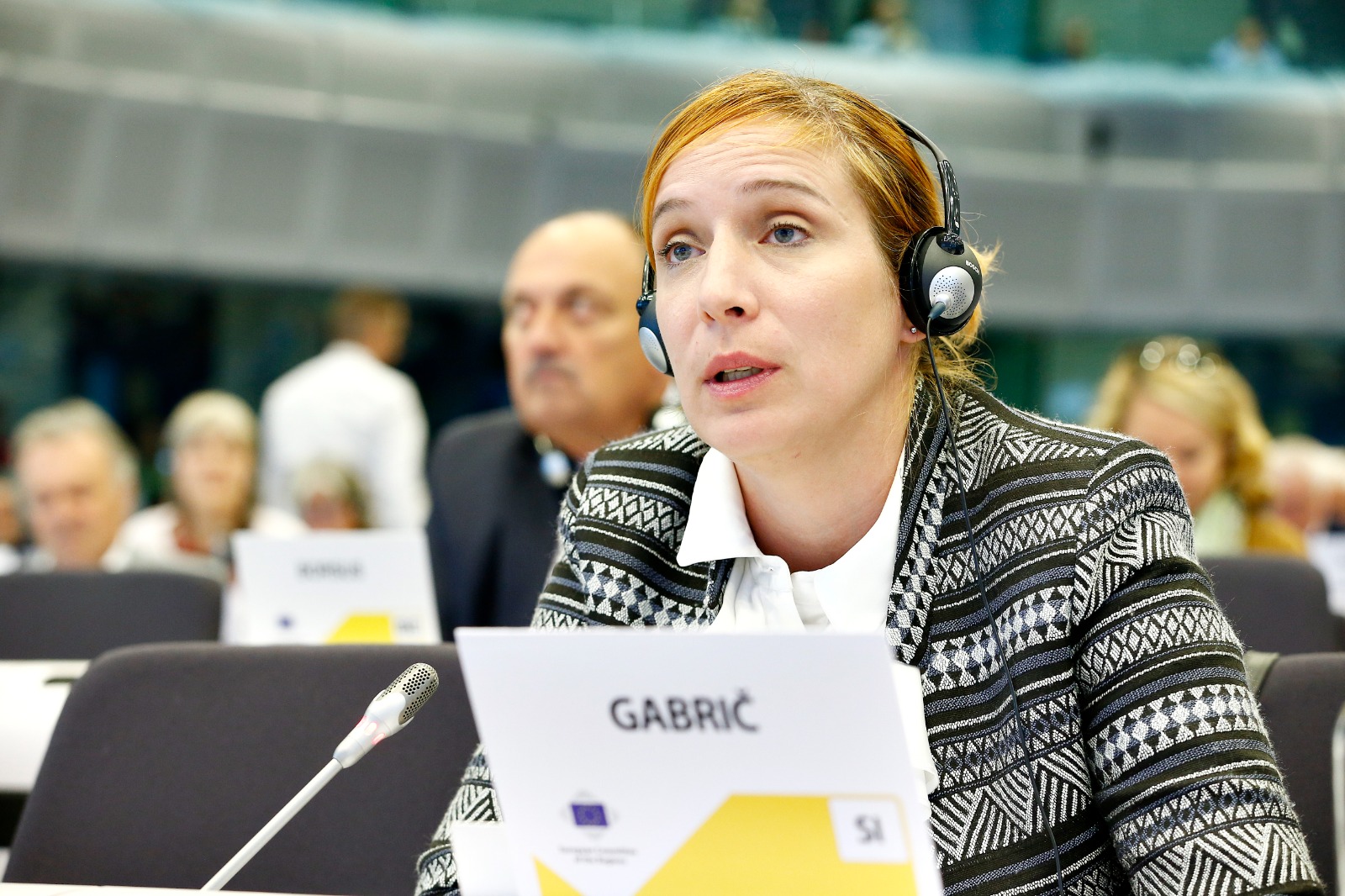
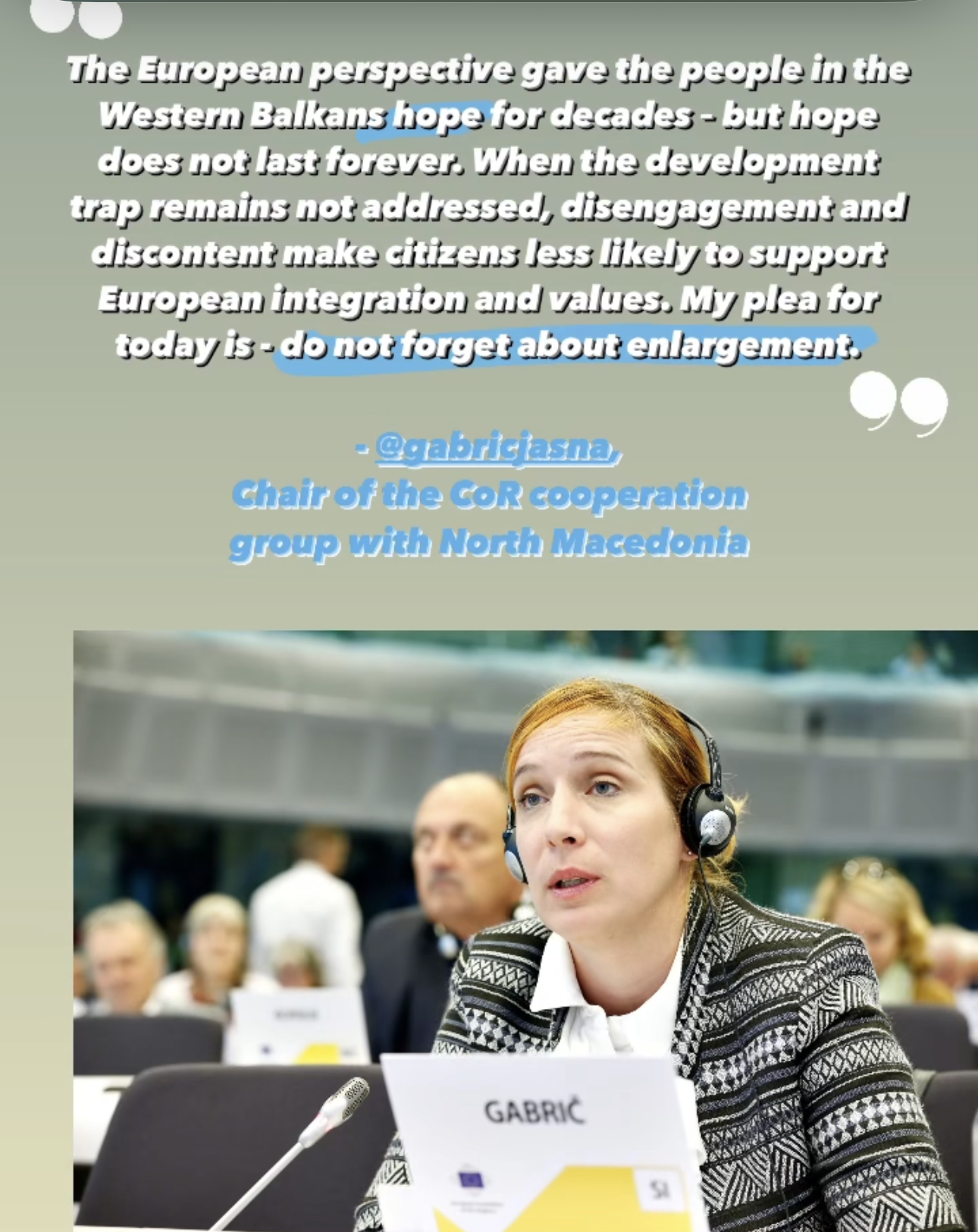
YEP Hélène Pollozec from Mayotte talked from her experience in Mayotte, a EU outermost region, describing it as a place where the EU can exert influence, where it meets other continents, but that is faced with many challenges as well, from climate change to migration. Pollozec described a drinking water crisis on Mayotte, which is something “unimaginable in the EU”. She urged the EU to take into account their different realities and needs.
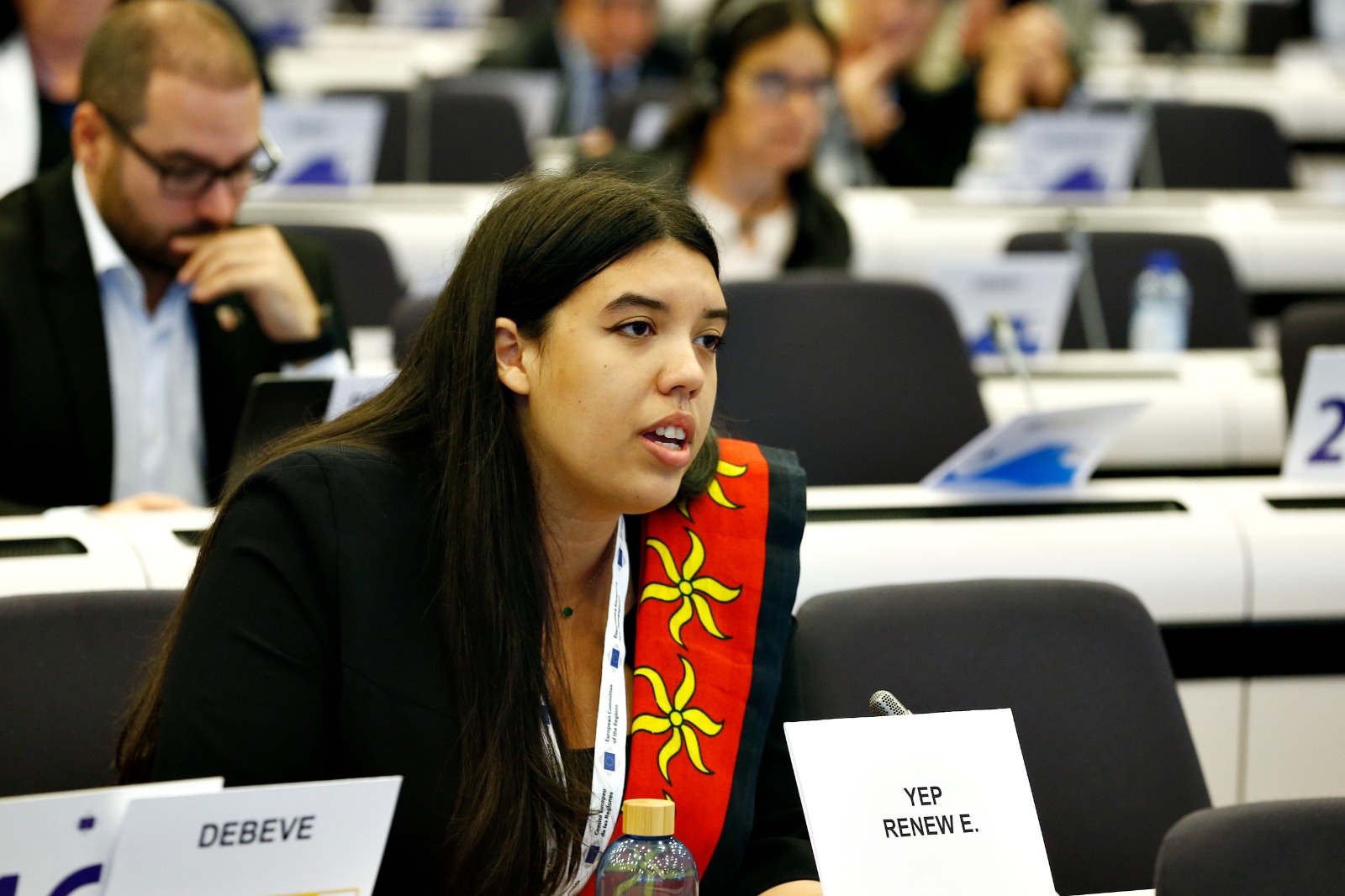
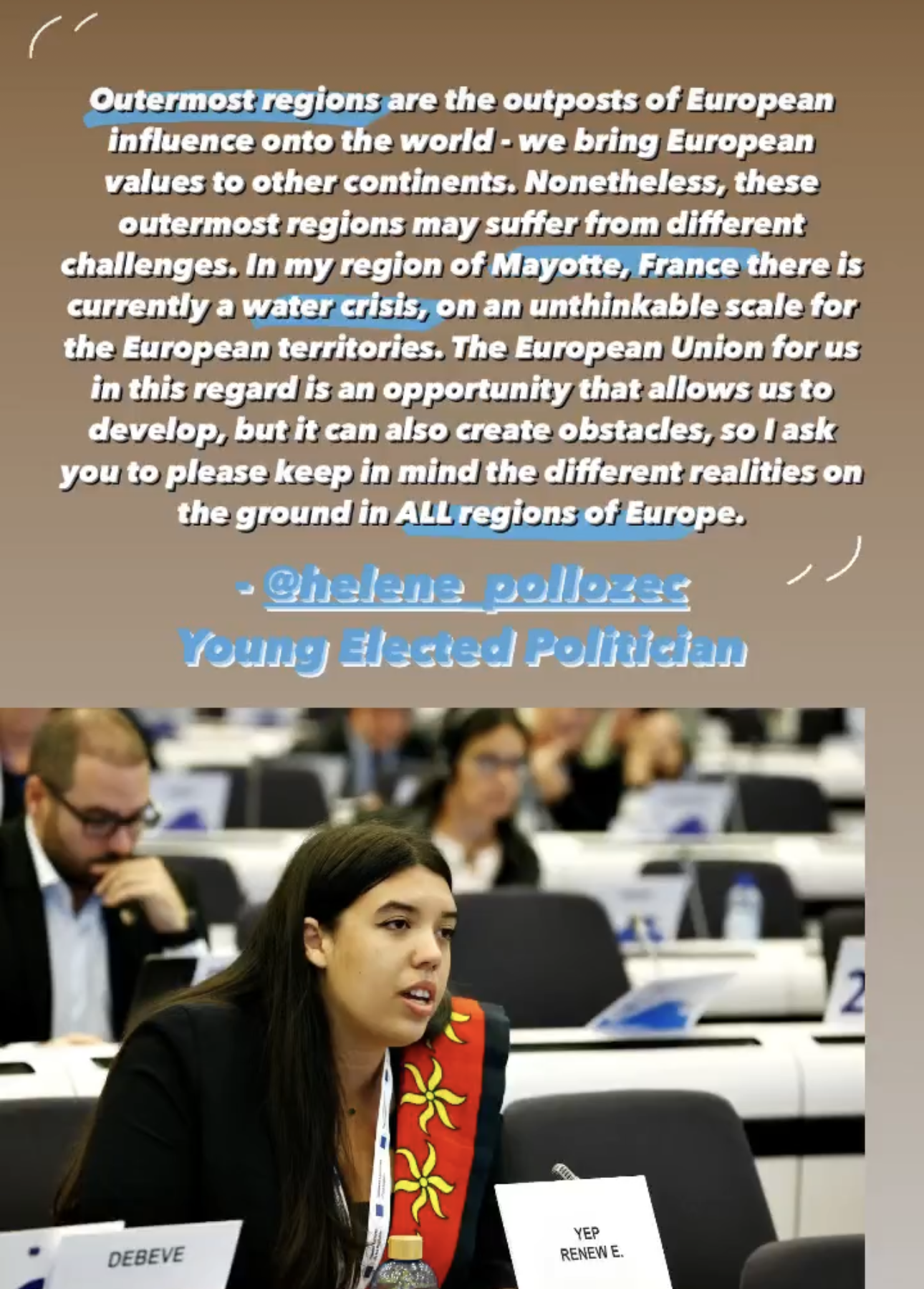
TUESDAY 10 October
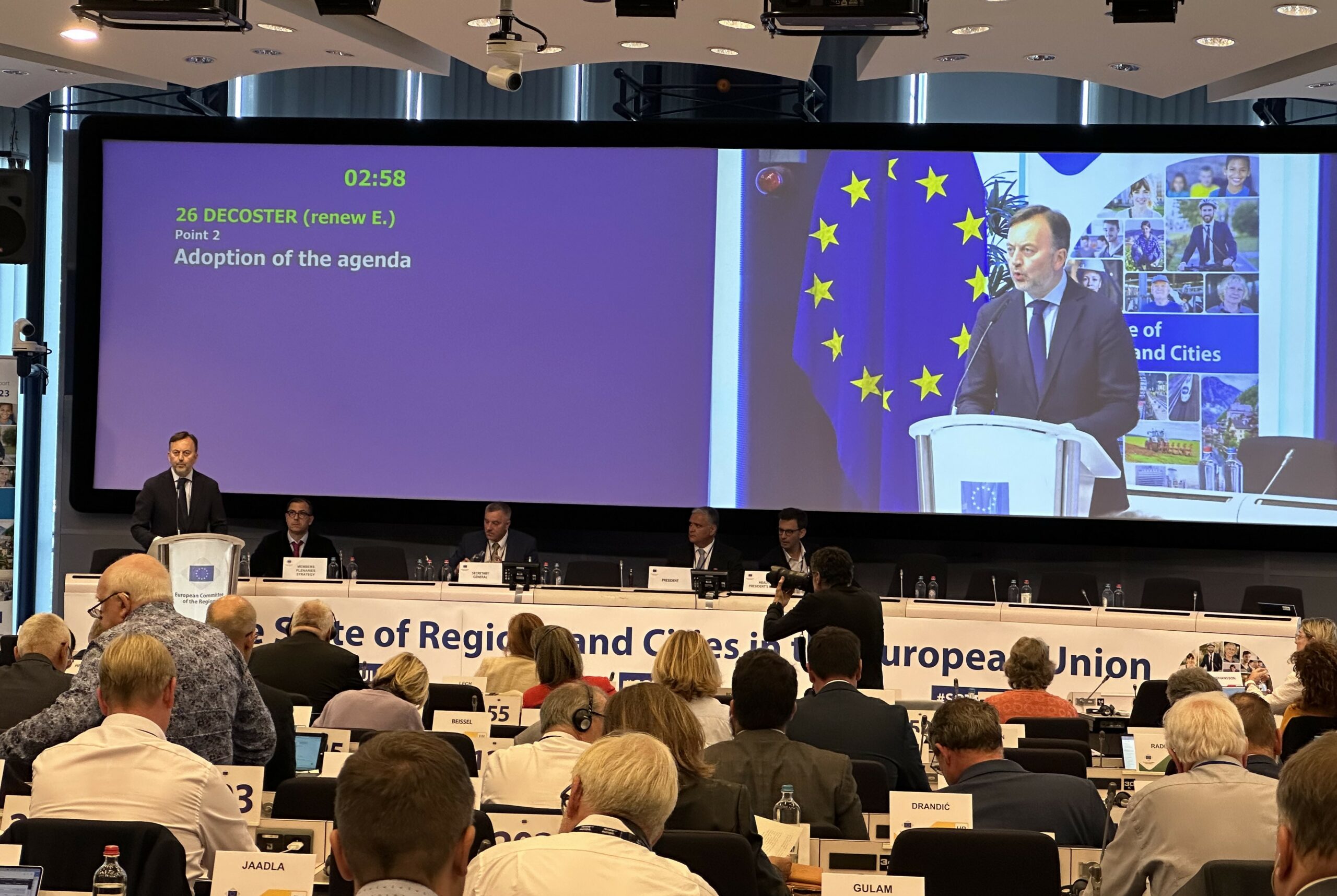
François Decoster opened the Plenary session with a clear condemnation of the Hamas terrorist attacks.
FULL REMARKS:
“Nous affirmons clairement que les actions du Hamas n’ont aucune justification, aucune légitimité et qu’elles doivent être universellement condamnées.
Rien, jamais, ne justifie le terrorisme.
Ces derniers jours, les terroristes du Hamas ont massacré des familles dans leurs maisons, ainsi que plus de 200 jeunes qui participaient à un festival de musique, et ont kidnappé des femmes âgées, des enfants et des familles entières, qui sont maintenant retenus en otage, sous les regards horrifiés du monde entier.
Nos pays soutiennent Israël dans ses efforts pour se défendre et défendre son peuple contre ces atrocités.
Nous appelons également les autres groupes extrémistes, ou tout État qui pourrait chercher à profiter de la situation, en particulier l’Iran, à ne pas chercher à exploiter cette situation à d’autres fins, ni à étendre le conflit au-delà de Gaza.
Nous reconnaissons tous les aspirations légitimes du peuple palestinien et soutenons des mesures égales de justice et de liberté pour les Israéliens et les Palestiniens.
Mais ne nous y trompons pas : le Hamas ne représente pas ces aspirations et n’offre rien d’autre au peuple palestinien que davantage de terreur et d’effusion de sang.
Au cours des prochains jours, nous resterons unis et coordonnés, en tant qu’alliés et amis de l’État d’Israël, afin de garantir qu’Israël soit en mesure de se défendre et pour instaurer les conditions d’un Moyen-Orient pacifique et intégré.”
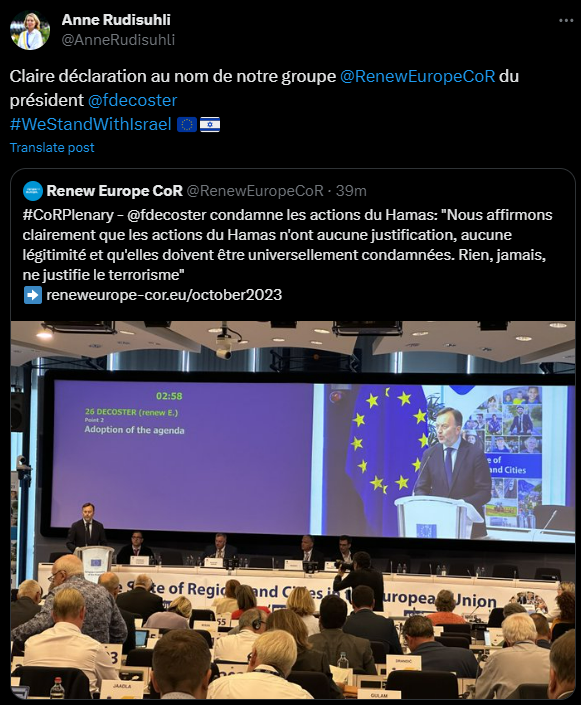
Presentation & adoption: “Mentoring: a powerful and meaningful tool for the Europe of tomorrow” by rapporteur Anne Rudisuhli
Rudisuhli: “Le mentorat ne transforme pas uniquement la jeunesse, il transforme la société, brisant les préjugés liés à l’âge, à l’origine, au genre, à l’éducation, aux quartiers les plus défavorisés et au monde du travail. Ne pas exploiter un tel outil à travers l’UE, notamment en cette période de transition numérique et énergétique, ainsi que face à l’accroissement des flux migratoires, serait inexplicable. C’est en substance ce que j’ai souhaité communiquer aux décideurs européens, nationaux et infranationaux. »
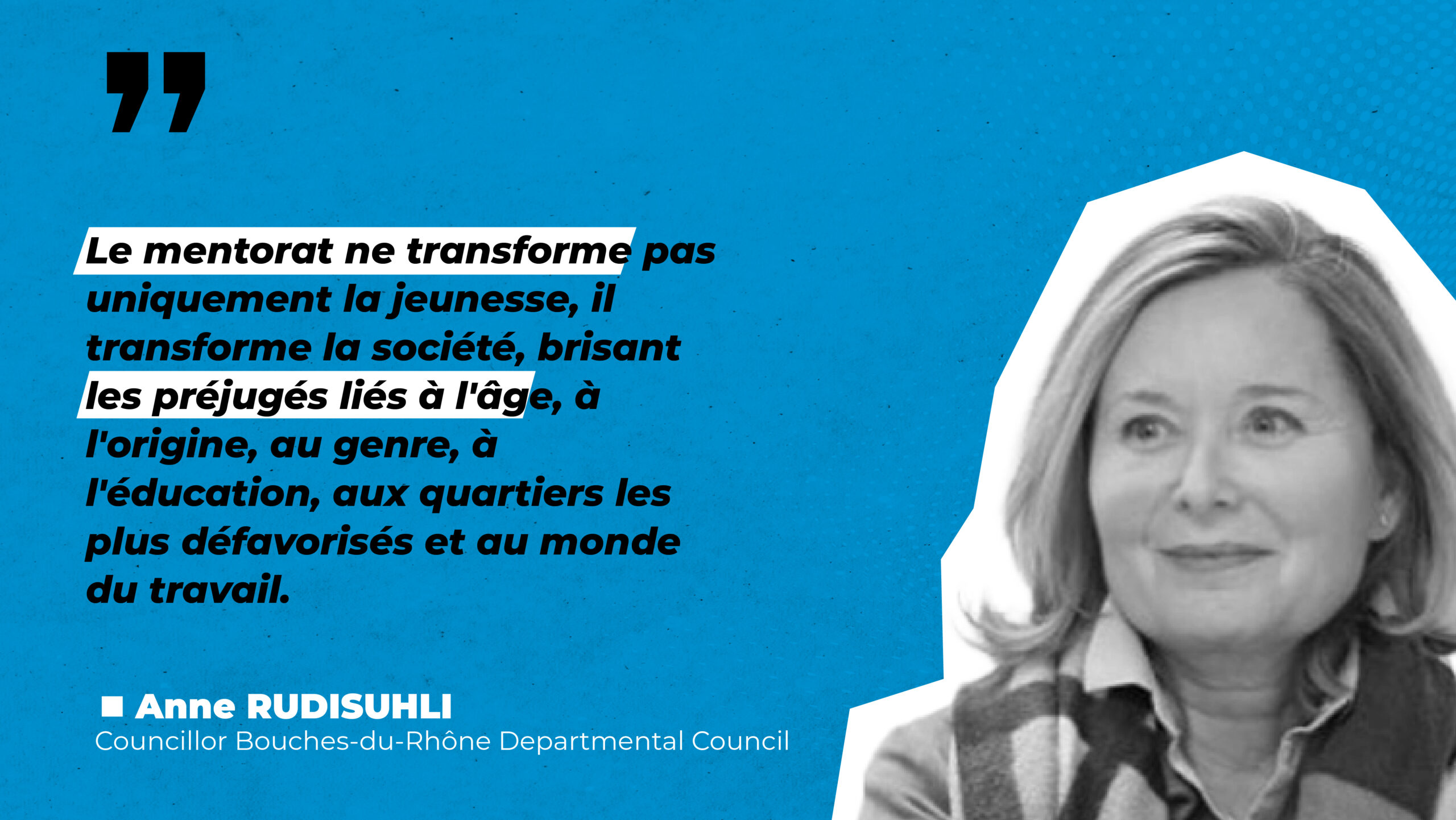
Presentation & adoption: “European Cross-Border Mechanism 2.0” by rapporteur Magali Altounian
“Avec le mécanisme transfrontalier européen, l’Union européenne proposera un outil concret pour répondre aux nombreux défis des territoires transfrontaliers et, ainsi améliorer la vie quotidienne de leurs citoyens. En tant qu’élu locale d’une région frontalière, la Région Provence-Alpes-Côte d’Azur, je suis fière, avec le Comité européen des Régions et aux côtés du Parlement européen, de contribuer à ces travaux et espère qu’un tel mécanisme pourra voir le jour très prochainement.”
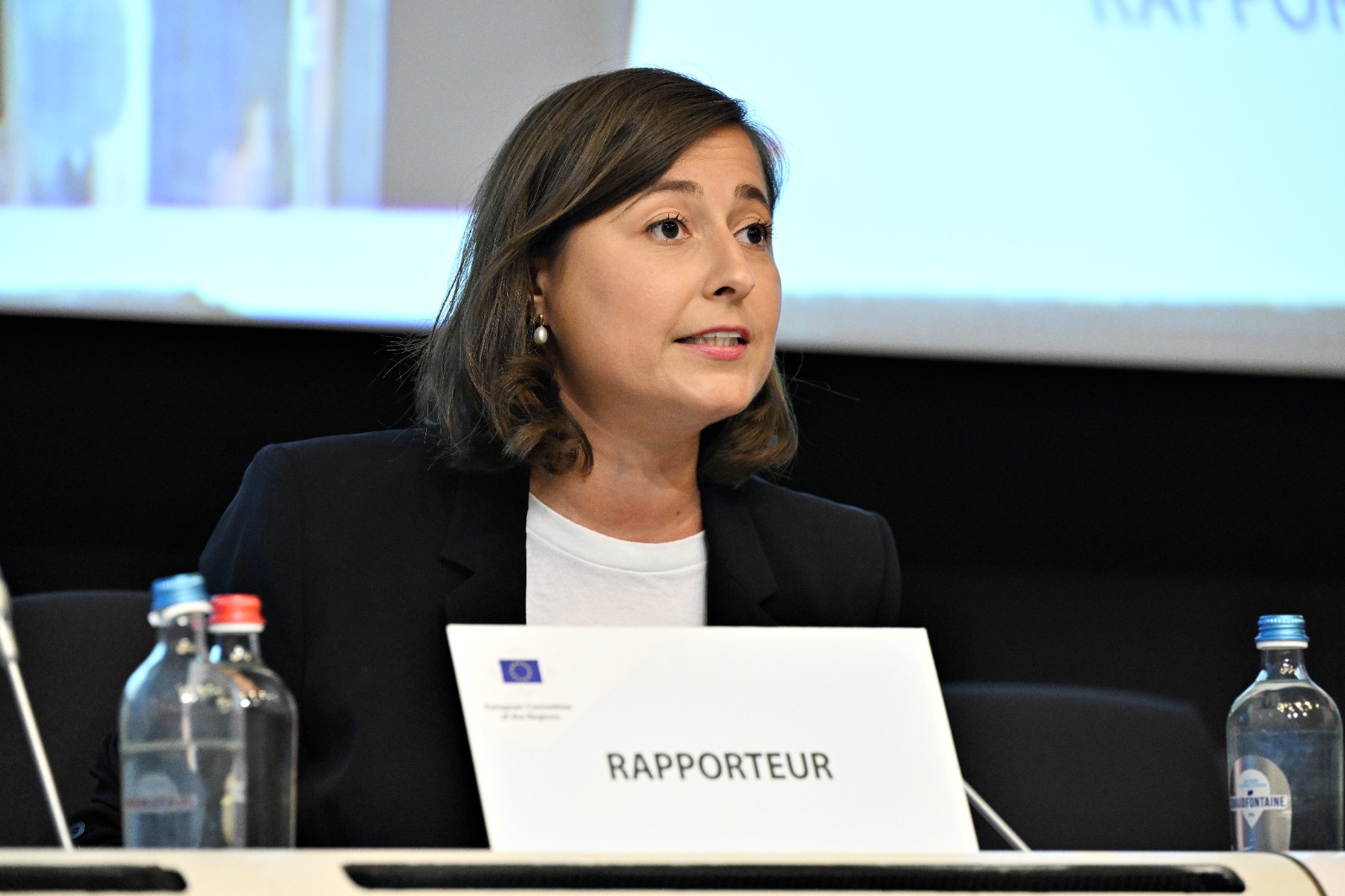
Debate on Health Union for Europe and its Regions with European Commissioner Stella Kyriakides – intervention of Kate Feeney (Fianna Fáil – Ireland)
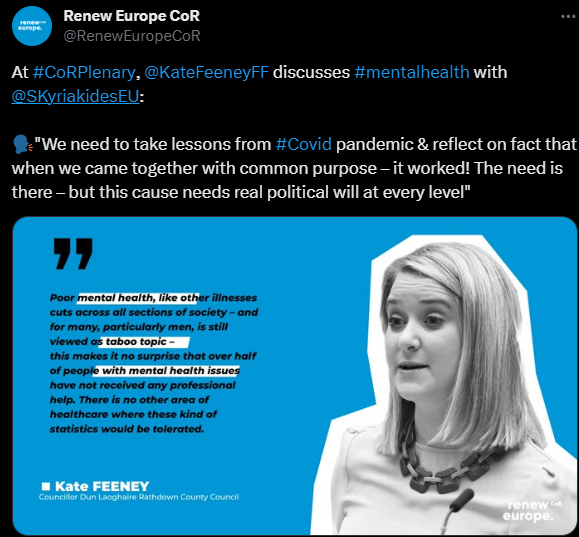
FULL REMARKS:
I am glad that you mentioned it is World Mental Health Day and I see you are wearing your green ribbon. Not to take away from the other important topics you have spoken about but because of the day it is I will focus on mental health.
I do not need to burden you with stats that you are already familiar – but we need to agree that mental health is not currently being well served across the Union. There is a saying that your health is your wealth – and that is true for societies as much as it is people.
Poor mental health, like other illnesses cuts across all sections of society – and for many, particularly men, is still viewed as taboo topic –
this makes it no surprise that over half of people with mental health issues have not received any professional help. There is no other area of healthcare where these kind of statistics would be tolerated.
Poor mental health is particularly acute in minority groups and within the young LGBTIQ community who suffer poorer mental and physical health outcomes due mainly to discrimination and stigmatisation.
In Ireland,
• 11% of travellers die by suicide – that is one in ten!!
• Members of the travelling community are 7 times more likely to die by suicide than the general population.
Because of this, in my local authority, we have a tailored programme to work with young traveller men in relation to their mental and physical health.
Travellers in Ireland do not have a natural pre-disposition to poorer mental health – the poor mental health in this group can be linked to the fact that:
• in 2019, the EU Agency for Fundamental Rights found that Irish Travellers suffer some of the worst discrimination and poverty of any ethnic group in Europe.
• On top of this 80% of the travelling community are unemployed – this links with the agreement between EU health and employment ministers earlier this week to examine precarious work practices and to boost public systems to safe guard mental health in the work place. Again highlighting your commitment to a cross sectoral approach to this topic.
In my council, we also offer targeted mental health interventions for older people who frequently suffer poor mental health due to loneliness. We have also seen promising results from a pilot social prescribing programme which we intend of rolling out permanently.
To conclude, we need to take lessons from the Covid pandemic and reflect on the fact that when we came together with common purpose – it worked!!
The need is there – but this cause needs real political will at every level and the cities as regions – those closest to the citizen need to be involved in the planning and roll out
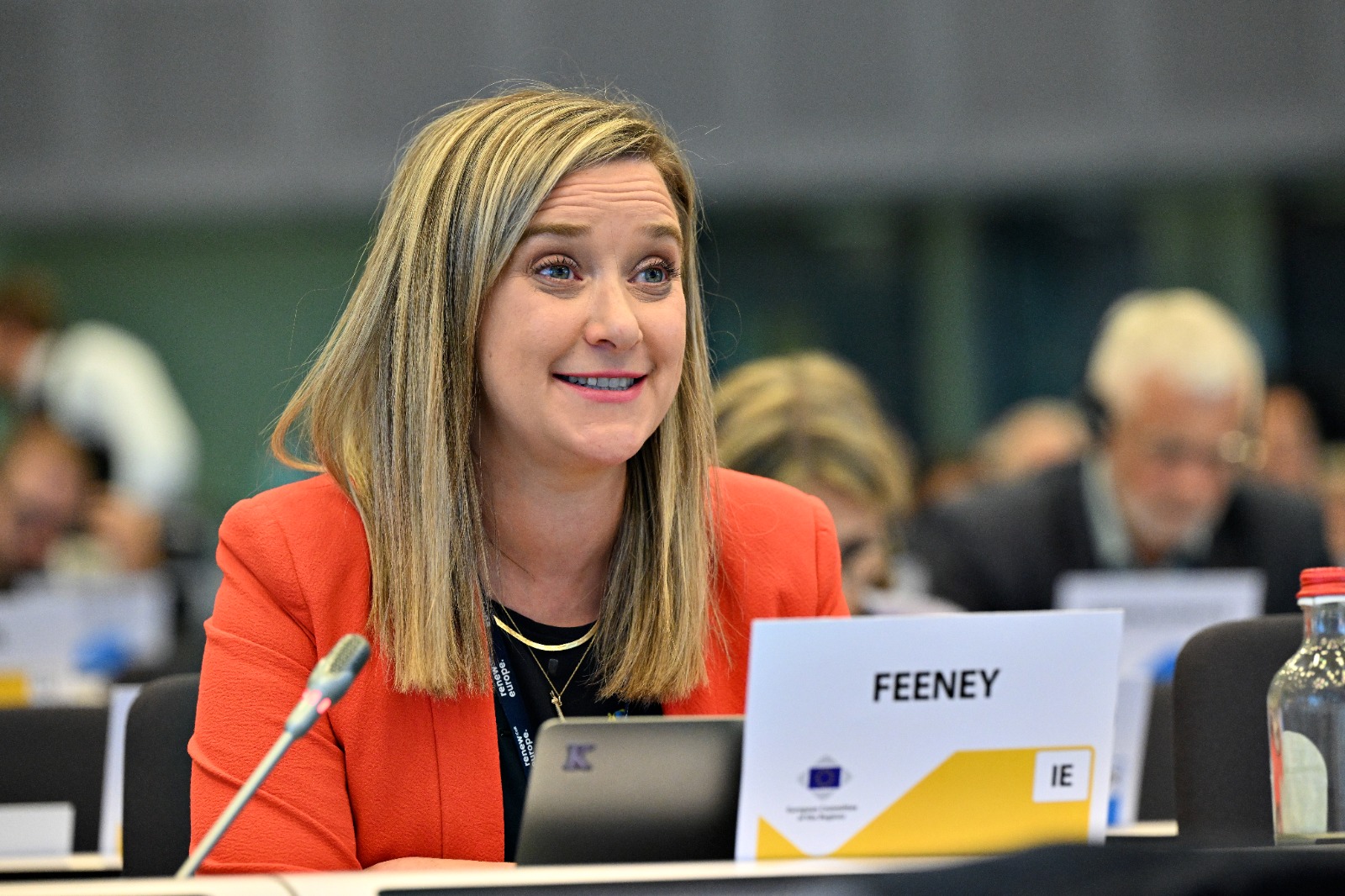
Our member Frida Nilsson was interviewed on best soil practices during the EWRC
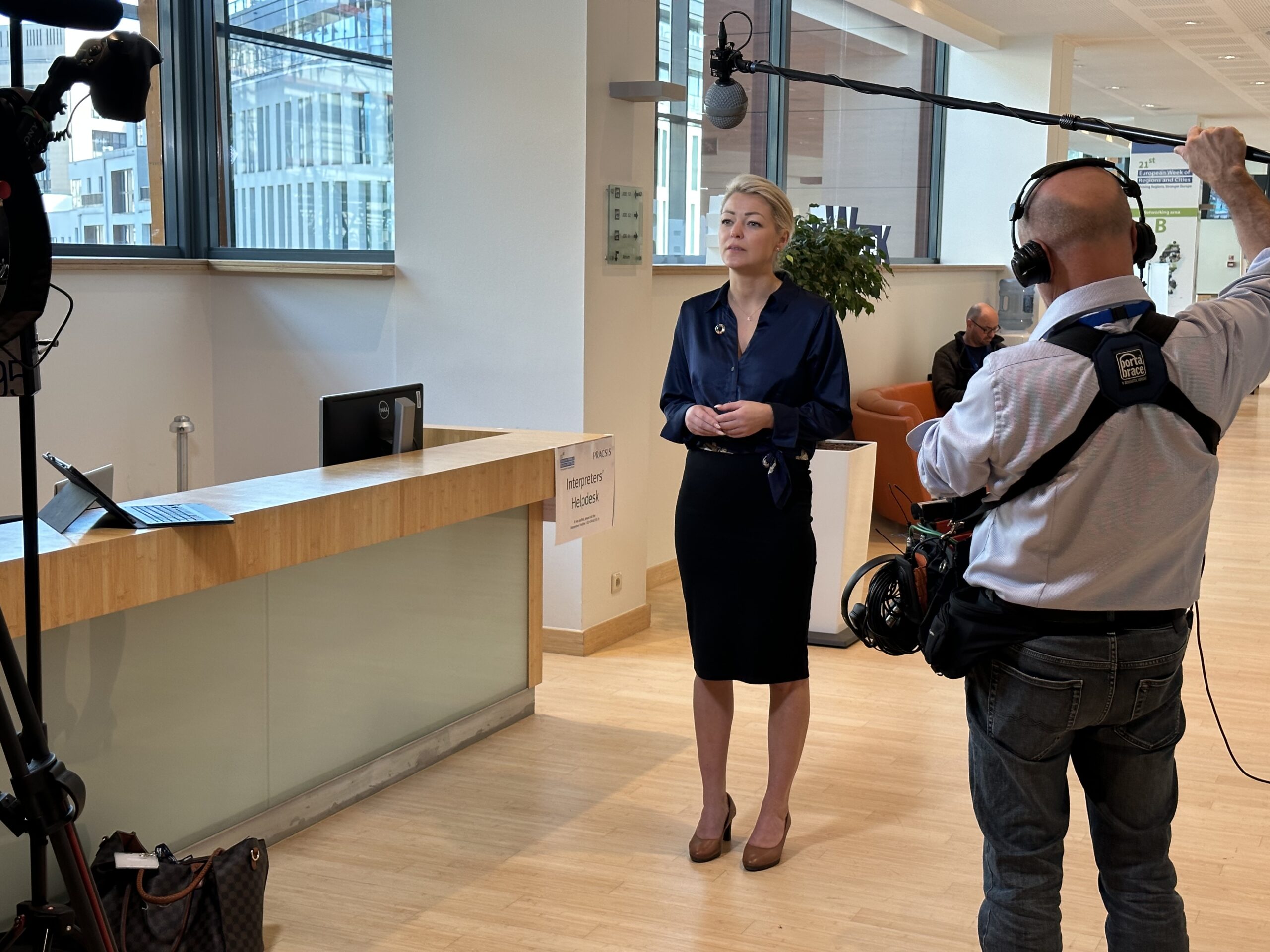
MONDAY – 9 October – Opening of European Week of Regions and Cities
Speaking during the State of Regions and Cities Debate opening the European Week of Regions and Cities, our President, François Decoster, Mayor of Saint-Omer, highlighted the European Committee of the Regions’ EU Councillors Network initiative and the need to uphold European values, while fostering a European citizenship: “European citizens are and must be at the heart of the European project. They want to feel and be at the core of taking European action”.
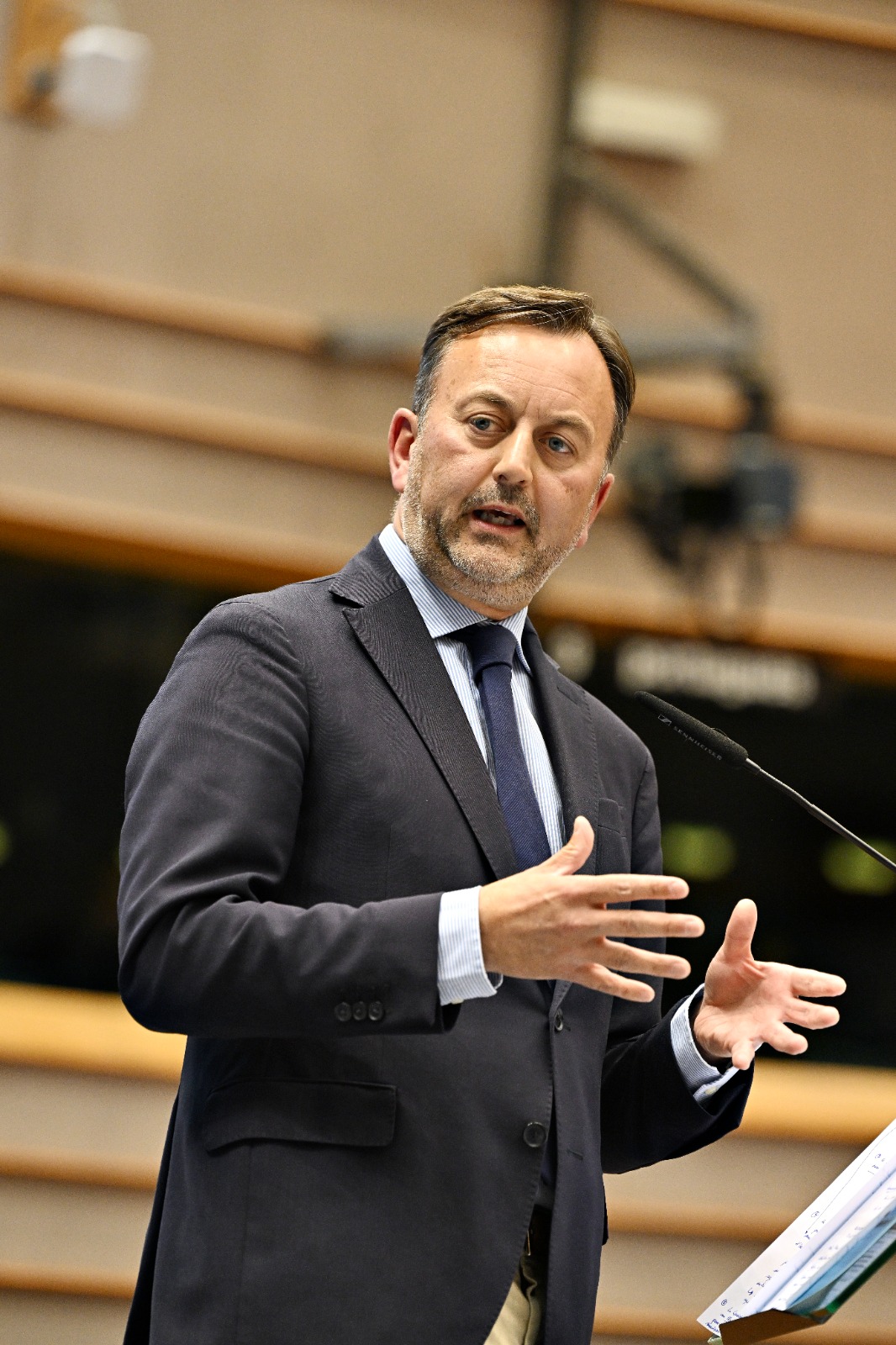
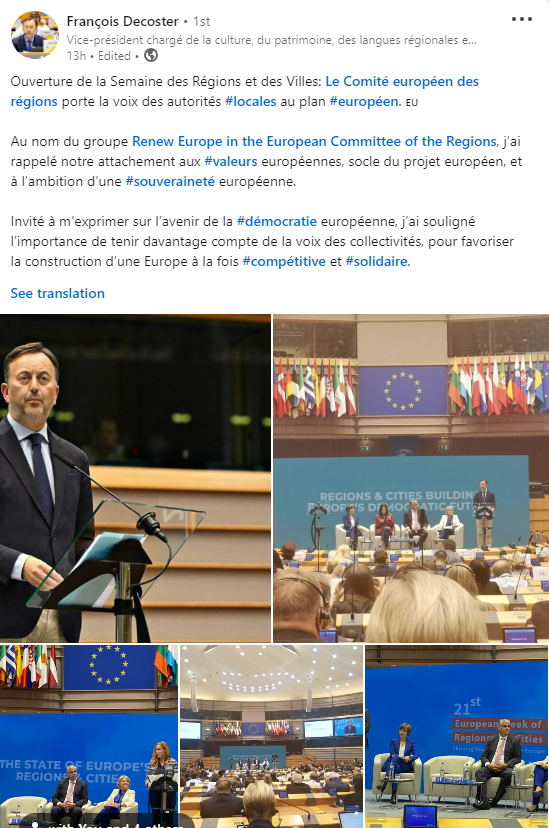
During the State of Regions and Cities Debate opening the European Week of Regions and Cities, our first Vice President, Jasna Gabric from Trbovlje, Slovenia, highlighted the effects that climate change has on our infrastructure and society: “the extreme climate events of this summer in Slovenian municipalities show that every investment in the green transition will have to be climate proof and resilient”.
Watch the full speech:
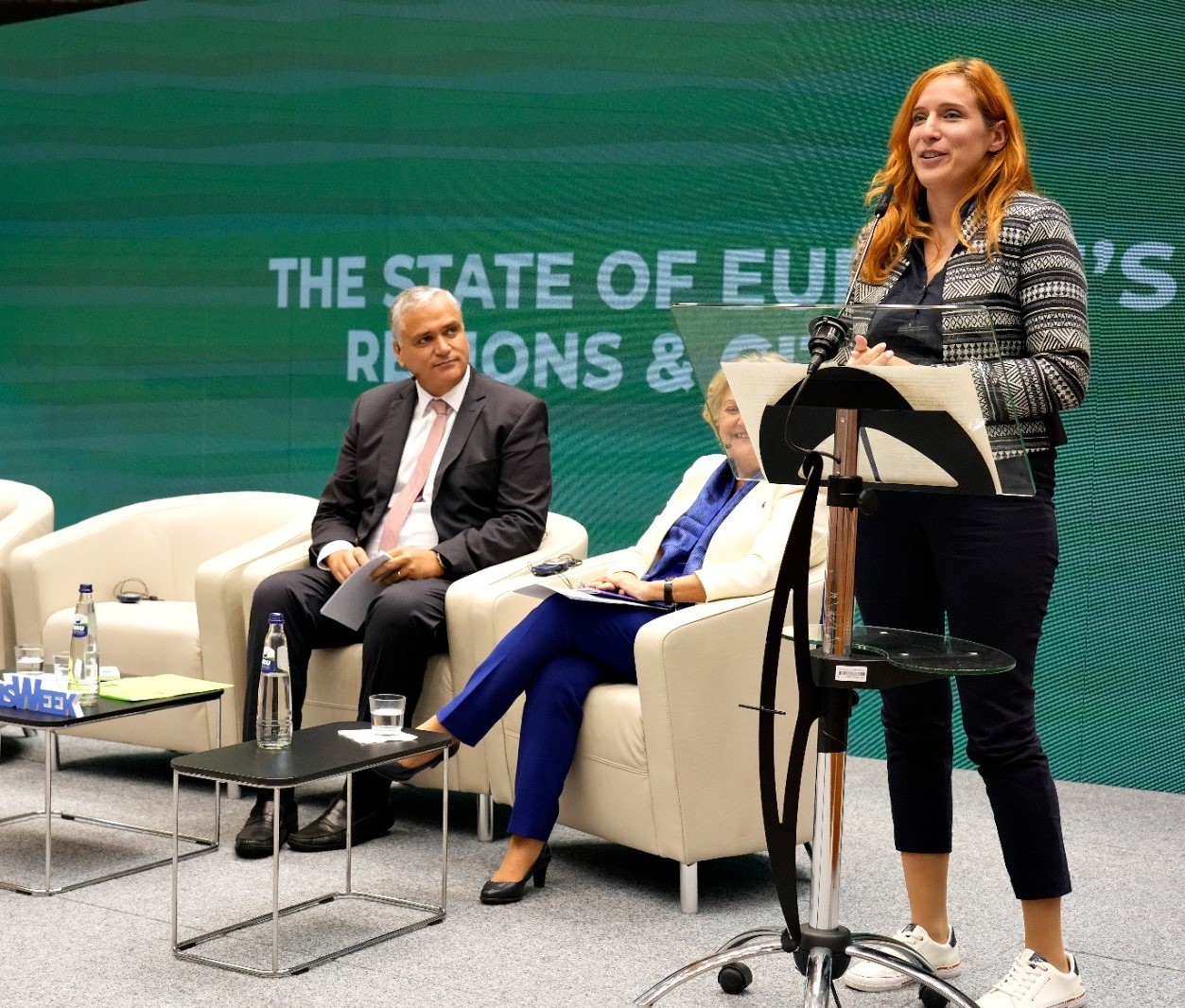
FULL SPEECH:
An important section of this year’s report is on climate disasters, resilience and adaptation. Numbers and each year’s new weather extreme records are telling, but the images from Slovenia this summer were something we could never even imagine.
After last year’s drought and fires, this year brought extreme climate events to an entirely new level in the wider Alpine region and Slovenia experienced its most devastating natural disaster since our independence.
In the second half of July, we had a period of of intense storm systems, including extreme winds and hail the size of tennis balls, passing the country and devastating homes, forests, infrastructure and vehicles. The municipalities and the government were already struggling to cope with the damages and the insurances were overwhelmed, when we received over 200 days worth of rain in one night on the 4th of August.
Several cities, towns and entire valleys were under water, homes flushed away, factories under water, entire infrastructure destroyed. Citizens were cut off civilisation for several days when the civilian protection and army tried to reach them.
One of the more striking things was that many of these buildings were new or entirely renovated. They were destroyed along with new insulation, windows, new heat pumps and solar panels installed just recently due to the energy crisis. Much of this has not even been paid for and families, companies and local authorities are stuck with mortgages and loans. This shows that every investment in green transition will have to be climate proof and resilient. Slovenian municipalities learned a lesson this summer.
Total cost of reconstruction is estimated to be up to 7 billion EUR, which is a large proportion of our national GDP. Some of the money will be comingfrom the Solidarity Fund and Slovenia plans to leverage some of the €2.7 billion in Next Generation EU loans.
Existing cohesion funds totaling €3.3 billion can and willbe reprogrammed to help the relief effort.But this of course means some other projects and priorities will have to be delayed and the regional development will suffer setbacks.
The positive experience was the civilian preparedness. Not only did our civilian protection manage to protect people’s lives, the EU civil protection mechanism significantly helped us in the immediate aftermath. Teams from all over Europe, including our Balkan neighbours and Ukraine arrived within days with heavy equipment and mobile bridges we desperately needed when we struggled to access settlements and citizens cut off from the rest of the country.
The most important thing now is that the reconstruction after the floods will be efficient and fast.
People need to know and see that we have not left them alone as a community. We would not have been able to deal with such large-scale floods so quickly and efficiently on our own.
On this occasion, we also thank everyone who helped us.
During this week, we also said goodbye to our member Eamon Dooley (Fianna Fáil, Ireland) who is retiring from politics:
